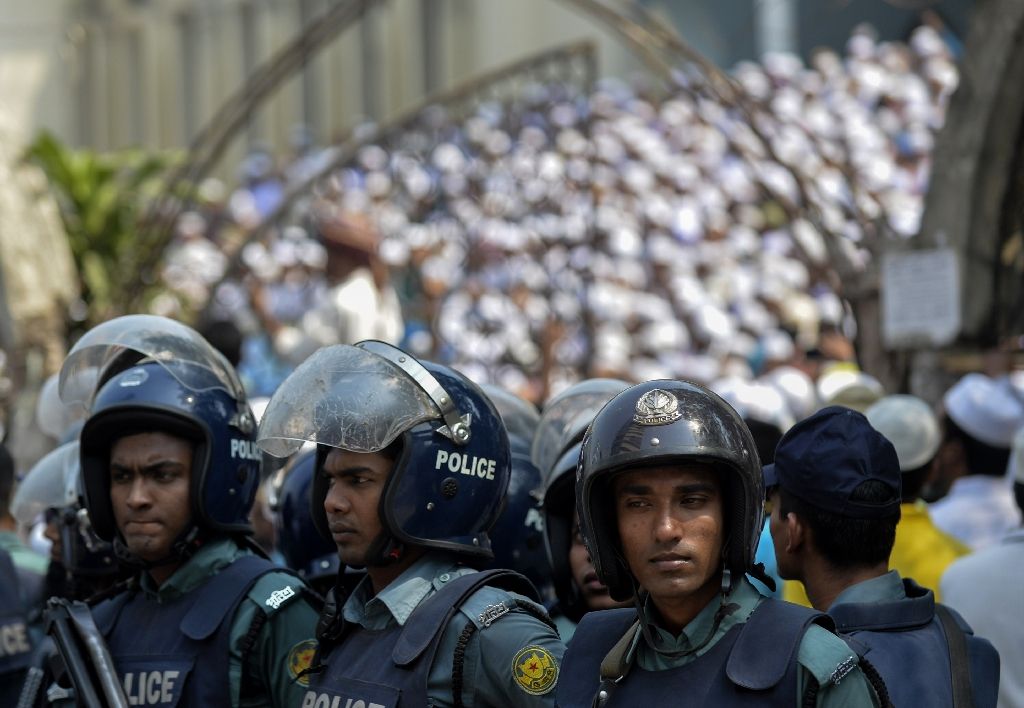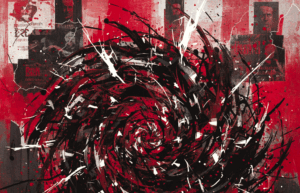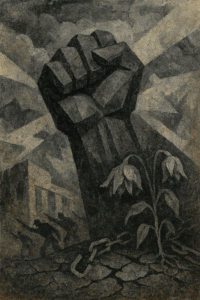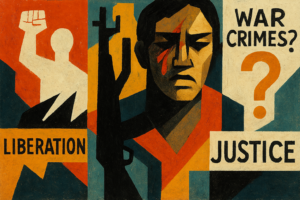
This post has already been read 47 times!
In 1988, Ershad’s predictably dictator-esque declaration of a state religion led to the formation of the Committee to Resist Despotism and Communalism (hereinafter CRDC). The CRDC filed a petition against the declaration, but to no avail. After a watershed verdict overturned the amendment legitimizing HM Ershad’s military rule, and declared all legal proceedings under it unconstitutional, the legitimacy of his promulgation of a state religion came under scrutiny. Then some weeks back, the petitioners learnt that their petition would finally be heard. By then, two-thirds of the eminent petitioners had passed away.
The High Court asked CRDC for an explanation, seeming oddly like an afterthought, on February 29, 2016. The story broke the next day: Islam’s status as the State Religion was at jeopardy! Right-wing propaganda news-site Breitbartwas one of the very first to report it. In three days, major outlets like Huffington Post and Yahoo! got whiff of the story. Within a week, it had spread like wildfire over international media.
The court – once the petition came up – determined that the petitioners had “no locus standi,” meaning that they had no grounds for the complaint and had not shown that the challenged law was causing them harm (WSJ). The sequence of events – judging from media reports – sounds hurried. As the New York Times’ headlinewent, “In 2 minutes, Bangladesh rejects 28-year old challenge to Islam’s role.” CRDC lawyer Subrata Chowdhury told Al Jazeera,“without a hearing and without giving us any chance to present our argument on the point of locus standi, the court dismissed the case.” (March 28).
Whether the illegitimacy (according to court ruling, valid “till Qayamat”) of Ershad’s rule had any bearing on the matter, remains uncertain or unresolved. The Amici Curiae (friends of the court) – comprising towering legal giants like Dr. Kamal Hossain, Rafique-Ul Haque, Amirul Islam and Rokanuddin Mahmud – got no chance to offer their professional opinions. It was going to ’cause delays’; not surprising, since there must have been a hurry after 28 years had suddenly elapsed. Ironically poetic, that the petitioners and their lawyers got 28 days to prepare, after a wait of 28 years. The rest is history, and not even rhetorically. But whether we like it or not, the law is the law and the court has done the country a service by upholding it.
It is interesting to note in passing the associated framing and language used by local and western media. Local media mostly termed it an unforeseen development and framed the hearing against ‘secularism in the constitution’ and ‘Ershad’s despotism’. Hefazat-e-Islam was peripheral in most analyses. Many social media commentators, however, were viewing the events through the lens of ‘political opportunism through the decades’. Not so the international ones.
All prominent names – The New York Times, Wall Street Journal, The Guardian – contextualised the story through a description of post-Shahbag developments, the rise of extremism and targeted killings.
Only this narrative – i.e. yet another moderate Muslim country succumbs to rising extremism – could knock off the Bangladesh Bank ‘hacking‘ and IT-expert abductionstories. Rampal and CHT have taken a back seat too. Given the short shelf-life of news-stories in the age of social media – it is unlikely that these or any other story of the past can be completely revived, or activists mobilized.
Having said that, any responsible citizen should entertain with caution the wild rumors that the petition was revived as a distraction or was plain pandering. Such rumors make light of a grave contradiction in our national stance on both religion and secularism, and try to imply political influence on the judiciary. Neither should be publicly attempted.
It is not uncommon for dictators to resort to religion or cultural traditions to draw legitimacy. Francisco Franco, Zia Ul Haque, Saddam Hussein are all good examples. True activists resist immoral or unjust actions, so the CRDC’s actions are understandable. The Court is a house of the law, and that is what it upheld. All politicians pander to religious sentiments, so even that is predictable. The media goes where the powerful go, and we saw convincing evidence of that. Every one played their part in these developments, but the educated citizens. Why is there no demand for a parliamentary debate or even a referendum? Can there be no social conversation even? Would it be the same if this were 1988?
In an ideal world, there would be a public disclosure, or at least summary, of what arguments were prepared by each party. Such a disclosure – at the risk of an inevitable media trial – would help citizens evaluate their own convictions and positions. It would spark a debate perhaps. But more importantly, it would give us an agreed-upon definition of what a ‘state religion’ is. Since these are legal arguments, there is no reason to fear that their secrecy is integrally linked to national security or the hunt for terrorists and/or hackers.
An honest discussion about state religions would entail the philosophy of the categorisation (e.g. can a nation state have a religion?), the rational need for a state religion (e.g. does it contribute more value than it takes away?), the economics of such a distinction (e.g. will it give the dominant group disproportionate resources?) and last but not the least, the social impact of this designation (e.g. does it bestow special access, status or influence to adherents of the state religion?). It would answer the questions: ‘what does it mean to have a state religion? Does having a state religion merely mean ‘most of our population subscribes to one creed’? Or does it install one stream of beliefs over all others? What reality, ranks, rules, resources and returns signify its meaning beyond the Constitution?’ How can one know if having a state religion is contrary to the principle of secularism, when (s)he doesn’t know what the former entails?
The court’s ruling is not an embargo on citizen activism and political debate. So a steady, civil conversation can indeed be revived. And proponents of a state religion need to be a part of this conversation. Let us respect legal rulings, but retain active interest in the philosophy and spirit of the law.
Meanwhile, let us not forget that ‘hackers’ siphoned US$101 million off our central bank. Twenty million was returned by dint of a spelling mistake (by riffing off which, a coaching center is about to be shut down). There needs to be accountability for this, not mere resignations. Let us consider that people who built a left-hand drive flyover are probably building a stronger safe for the hacked bank as you read! Let the anti-corruption crusaders act, or be faced with questions themselves. There have been unacceptable levels of institutional failures in the country of late, and we deserve better. We would do well to keep our eyes on the ball.
This post has already been read 47 times!






